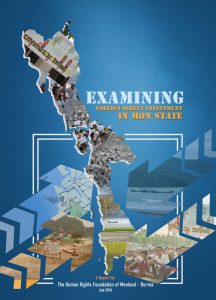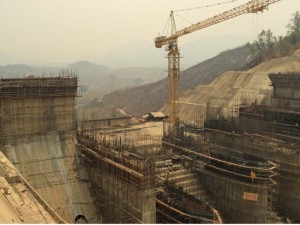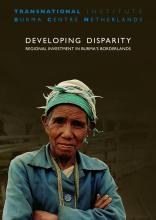Posts Tagged ‘Foreign Direct Investment’ (9 found)
Examining Foreign Direct Investment in Mon State, Burma
 Over the years, the Human Rights Foundation of Monland (HURFOM) has produced a number of accounts highlighting the hardship faced by Mon people who have become victims to land confiscation […]
Over the years, the Human Rights Foundation of Monland (HURFOM) has produced a number of accounts highlighting the hardship faced by Mon people who have become victims to land confiscation […]
Burma’s Ethnic Areas Too Volatile for Foreign Investment
 In the same week that China announced that the Shwe oil and gas pipeline that runs across Burma will be completed in May, a report from the Transnational Institute and Burma Centre Netherlands, Developing Disparity: Regional Investment in Burma’s Borderlands, warns that foreign investment in ethnic areas has the potential to exacerbate ethnic tensions and disempower local communities.
In the same week that China announced that the Shwe oil and gas pipeline that runs across Burma will be completed in May, a report from the Transnational Institute and Burma Centre Netherlands, Developing Disparity: Regional Investment in Burma’s Borderlands, warns that foreign investment in ethnic areas has the potential to exacerbate ethnic tensions and disempower local communities.
The completion of the 700-mile Shwe dual oil and gas pipeline will conclude the opening chapter of a project that has created a platform for a plethora of human rights abuses. Transporting oil and gas from the Bay of Bengal, the pipeline starts in Arakan State, and passes through Magway and Mandalay Divisions and Shan State, before finishing in Yunnan province, China. While the military controlled company, the Myanmar Oil and Gas Enterprise will gain up to $29 billion over the next 30 years through sale of oil and gas to China, the project has already negatively affected communities across Burma, as the Ta’ang Students and Youth Organization recently documented in Ta’ang areas of Shan State […]
Developing Disparity: Regional Investment in Burma’s Borderlands
 Unless foreign direct investment in Burma’s war-torn borderlands is refocused towards people-centered development, it is likely to deepen disparity between the region’s most neglected peoples and Burma’s new military, business and political elite and exacerbate a decades-long civil war.
Unless foreign direct investment in Burma’s war-torn borderlands is refocused towards people-centered development, it is likely to deepen disparity between the region’s most neglected peoples and Burma’s new military, business and political elite and exacerbate a decades-long civil war.
Burma has entered a pivotal stage in its political and economic development. The advent of a new quasi-civilian government has raised the prospect of fundamental reforms […]
U.S. State Department Must Hold U.S. Companies in Burma to International Standards
New investors in Burma should be required to publicly report on their human rights and environmental impacts, land acquisitions, security arrangements, and government payments – as well as those of their subsidiaries and business partners […]
• • •Statement on Foreign Investment in Burma
Daw Aung San Suu Kyi made a very important statement today that I call on the Administration and our European allies to heed. She urged foreign governments not to allow their companies to enter into new partnerships at this time with the Myanmar Oil and Gas Enterprise […]
• • •Catalyst for Conflict
Foreign investments are causing increasing conflict and abuses in northern Burma despite recent ceasefire agreements and talk of reform in the country, according to a briefing paper released by the Ta’ang Students and Youth Organization […]
• • •AIPMC Welcomes Election of NLD Members to Myanmar’s Parliament but Warns that Lifting of Sanctions Poses a Threat to Reform Process
The ASEAN Inter Parliamentary Myanmar Caucus (AIPMC) today congratulated the people of Myanmar on the successful exercising of their democratic rights in Sunday’s by election but warned the international community that the lifting of sanctions […]
• • •Burma Environmental Working Group Issues Benchmarks for Investment in Energy, Extractive and Land Sectors in Burma
Today, the Burma Environmental Working Group (BEWG) – an alliance of grassroots-based organizations – has issued its Benchmarks for Investment in Burma’s Energy, Extractive and Land Sectors to serve as a framework for responsible investment in critical sectors in Burma […]
• • •Sanctions on Burma: A Review by the NLD
In recent months sanctions have repeatedly featured in discussions over the kind of policies that would best encourage positive change in Burma. Are current administrative policies and practices conducive to a healthy economy, with or without sanctions? Are allegations that sanctions have exacerbated the hardships of the people of Burma justified or are such accusations based on political motives? Are sanctions in their present form likely to achieve the desired objectives? Are there credible signs of progress in the democratization process? The issue of sanctions needs to be examined within the broad context of political desiderata and economic realities […]
• • •








 All posts
All posts